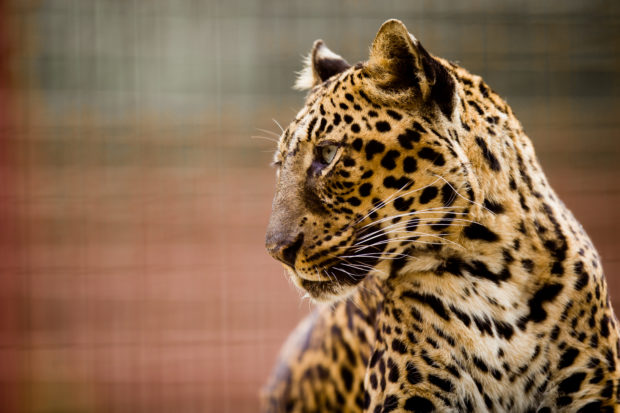Journalist Marc Gunther’s detailed profile of The HSUS and me in the current issue of the Chronicle of Philanthropy highlights our aggressive yet mainstream approach to driving transformational change for animals over the last decade. The HSUS and its affiliates have fortified the legal framework against cruelty, set the nation on a trajectory to end extreme confinement of animals on factory farms, halted the use of chimps in invasive experiments, and much more. While there are many extraordinary groups and advocates working for animals in the United States and elsewhere, there’s no group like The HSUS, deploying so many tools and talented people to confront the biggest challenges that animals face. We don’t relent until we succeed.

Yesterday the U.S. Fish and Wildlife Service issued a positive finding on a legal petition to list all leopards as “endangered.” This would eliminate a 1982 loophole that has allowed American trophy hunters to import thousands of leopard trophies in the last decade from sub-Saharan Africa without appropriate scientific scrutiny. Photo by Chip Litherland/AP Images for The HSUS
As Gunther reports, the HSUS playbook calls for attacking a problem from a wide variety of angles and through multiple channels – involving corporate campaigners, legislative and regulatory specialists, grassroots activists, undercover investigators, social media mavens, scientists and other issue experts, hands-on animal care experts, and our formidable in-house and pro bono legal team.
Our first priority is to work collaboratively for change – both in the legislative and corporate arenas. But sometimes, when we achieve a victory or when we have exhausted other tools, it’s time to call in the legal team. We started our internal litigation unit with just three lawyers in 2005, led by Jonathan Lovvorn, and now it’s a force of more than 20 attorneys who work with hundreds of pro bono attorneys throughout the nation — many of them punching the clock with the biggest-name law firms in the nation.
In recent days, our litigation team has racked up multiple important victories.
I wrote a few days ago about our major win to uphold California’s landmark farm animal protection laws halting confinement of farm animals. A story in The Pitch, an alternative paper in Kansas City, provides background, including a clear-eyed view of a politically motivated effort by Missouri Attorney General Chris Koster to curry favor with Big Ag by attacking California’s animal welfare laws and, in the process, burning more than $125,000 of taxpayer funds from Missourians. Koster, who just lost his November race for governor, filed a lawsuit two years ago to overturn California’s law requiring that eggs sold in the state come from hens not cruelly confined in tiny cages. Our attorneys teamed up with California Attorney General and now U.S. Senator-elect Kamala Harris to parry Koster’s overreaching and dangerous lawsuit.
The recent ruling by the 9th Circuit Court of Appeals, affirming California’s right to take the action it did to protect animals and consumers, came just days after voters in Massachusetts affirmed a ballot initiative we launched to replicate and then build on elements of California’s farm animal protection laws.
On Monday, we got word that a state court judge had delivered another big win for us. In this case, the judge upheld a separate California statute, championed by former Assembly Speaker and Senator-elect Toni Atkins, D-San Diego, that was written to forbid any intrastate trade of ivory and rhino horn, thus adding to our global campaign to stem international poaching and wildlife trafficking. The so-called Ivory Education Institute had challenged the law as unconstitutional, and our litigation team worked with other animal welfare and conservation groups to intervene to defend the law. The court rejected every one of the Institute’s claims, finding that the law passes constitutional muster, as it is within the state’s authority to regulate such activities. As with the Koster case, this defensive effort on our part affirms important constitutional principles and validates our argument that the states have a legitimate role to play in restricting local markets for products that originate from fundamentally inhumane or unsafe practices.
We also had a big win in Michigan on another wildlife issue. The Michigan Court of Appeals unanimously struck down a state law advanced by lawmakers working on behalf of the trophy-hunting industry and the commercial-trapping lobby. In response to a lawsuit brought on behalf of the HSUS-backed group, Keep Michigan Wolves Protected, the court overturned the state legislature’s efforts to force the opening of a wolf-hunting and -trapping season. It found the legislature acted unconstitutionally by combining desirable provisions for waiving fees for hunting licenses and combating the spread of Asian carp “while surreptitiously slipping inside” a legislative override of prior referenda votes and putting wolves on the game species list.
This judicial decision aligns very nicely with the views of Michigan voters. State lawmakers played games to satisfy the hunting lobby, and thumbed their noses at citizens who resoundingly voted down pro-wolf-hunting measures in the general election in November 2014. In the first-ever statewide votes related to wolf hunting in any state, Michigan voters sent a loud and clear message against a wolf-hunting season and against the Natural Resources Commission having unilateral authority to transfer any “protected” species to the “game species” list. Voters repealed Proposal 1 (moving the wolf to the game species list) with a 55 percent “no” vote. They also defeated Proposal 2 (giving the NRC the authority to decide which species can be hunted) with a 64 percent “no” vote. Proposal 2 was rejected in 69 of 83 counties, in a landslide verdict that said the NRC should not be able to open seasons on species.
In short, Michigan’s wolves are now protected under state law and also under federal law, thanks to major rulings we won in federal court to maintain the threatened and endangered status for wolves in Michigan, Minnesota, Wisconsin, and Wyoming.
Our team also got some good preliminary news on a legal petition we advanced to protect leopards in Africa. Yesterday the U.S. Fish and Wildlife Service issued a positive finding on the petition, to list all leopards as “endangered.” This would eliminate a 1982 loophole that has allowed American trophy hunters to import thousands of leopard trophies in the last decade from sub-Saharan Africa without appropriate scientific scrutiny. The Service will now conduct a comprehensive status review of the species to determine whether increasing protection is warranted.
It remains to be seen whether and how the incoming Trump Administration will continue with a serious treatment of the leopard’s status, given the enthusiasm that the trophy-hunting lobby has for killing leopards and importing their heads and hides. But we’ll press our case, and if need be, we’ll take matters to the courts when executive agencies or lawmakers overstep or fail to enforce the rule of law. As we’ve shown time and again, when it comes to animal welfare, we’re in it to win it.
The post Advancing the cause through many channels, including the courts appeared first on A Humane Nation.
Enviroshop is maintained by dedicated NetSys Interactive Inc. owners & employees who generously contribute their time to maintenance & editing, web design, custom programming, & website hosting for Enviroshop.
